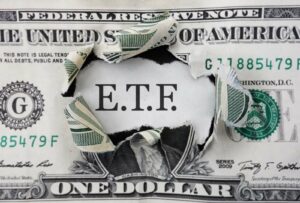Senator Elizabeth Warren has recently reintroduced her Anti Corruption and Public Integrity Act, which would ban lawmakers from owning individual stocks. The bill, which also targets lobbying and stricter ethics rules for the Judicial branch, was first introduced in 2018 after Rep. Chris Collins was arrested for insider trading charges. This time, the bill was introduced amidst the controversy surrounding Senators Perdue and Loeffler. Their involvement in stock trading scandals may have swayed the runoff elections that determined control of the Senate. While the instinct to ban trading to prevent conflicts of interest is noble, the ban on trading may not completely remove “both the appearance and the potential for financial conflicts of interest” as Warren hopes.
As recent controversies have shown, government officials need not sell or buy individual stocks, or even break existing laws, to betray the public trust. Even with a total ban on stock trading, officials could still divert resources, funding, or demand towards industries and companies for their own benefit, as Louis DeJoy did. The most effective way to prevent these betrayals is to increase transparency. To the bill’s credit, it does look to establish a U.S. Office of Public Integrity and a U.S. Office of Government Ethics, which would centralize disclosure documents and could lead to stricter disclosure requirements later on. For now, it is unclear whether the Office of Public integrity would affect disclosure requirements beyond the executive branch.
To minimize potential for financial conflicts of interest, legislators should look to increase transparency within the scope of the STOCK and Ethics in Government acts. Requiring centralized access is a good step, but more immediate trade disclosure and more precise data should also be mandatory. Currently, the data within Congressional financial disclosures is given in broad tranches of dollar amounts spanning orders of magnitude. In an age of portfolio management software, there exists no reasonable obstacle to providing exact dollar amounts when disclosing financial holdings and transactions and no reason why transactions cannot be connected to a map of accounts so outstanding conflicts can be understood.
Additionally, Warren’s bill would allow funds created from selling individual securities to be re-invested in “conflict-free investments like mutual funds.” While it is good to have investment alternatives available for government officials, mutual funds are not currently disclosed assets under the STOCK Act. Further restrictions on which mutual funds are available for purchase or increased disclosure requirements for mutual funds would also important, else this move serve as a step backwards for transparency.
The introduction of the Anti Corruption and Public Integrity act was possibly a political move to highlight the wrongdoings of Loeffler and Perdue. Still, Senator Warren has been consistent with her stances on corruption and accountability since before her primary presidential bid. Now, with a Democratic Senate, the bill may well get a fair shake. It seems well intentioned, and if signed into law it would certainly be a step in the right direction. The bill does have some blind spots when it comes to transparency that could keep it from being the effective and sweeping fix it presents itself to be.





